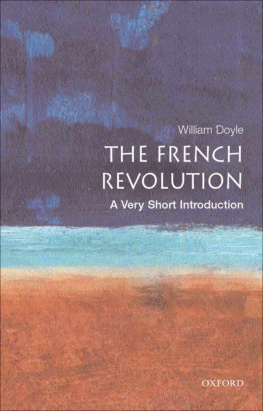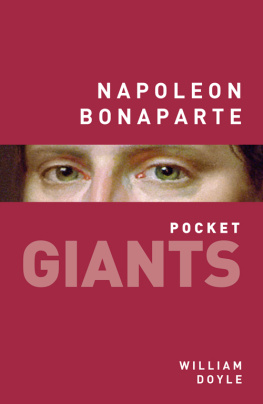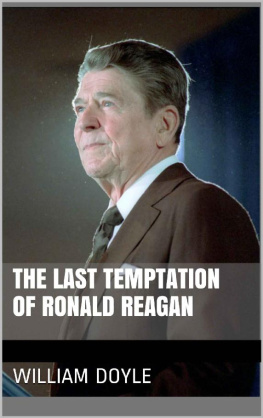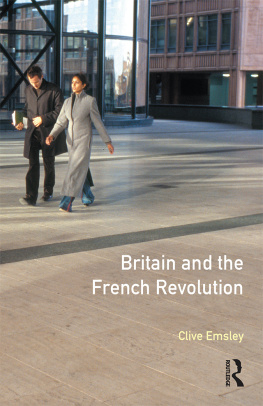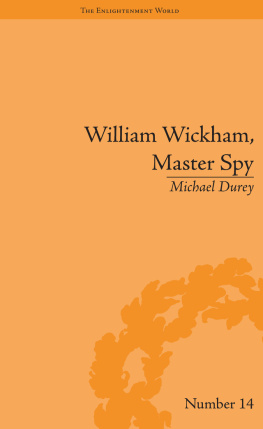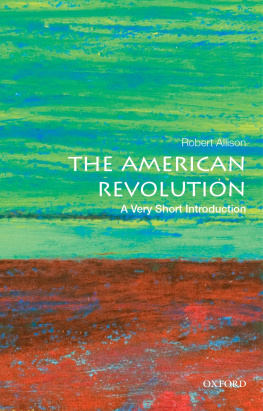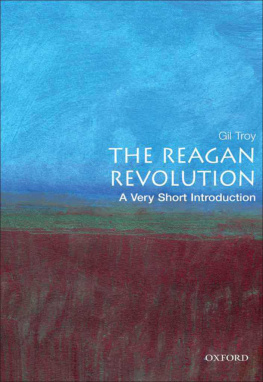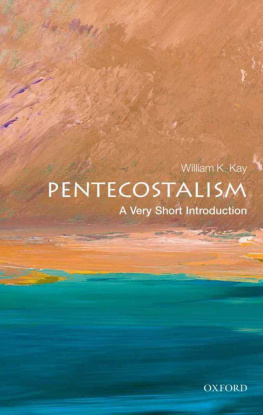William Doyle - The French Revolution: A Very Short Introduction
Here you can read online William Doyle - The French Revolution: A Very Short Introduction full text of the book (entire story) in english for free. Download pdf and epub, get meaning, cover and reviews about this ebook. City: Oxford, year: 2001, publisher: Oxford University Press, genre: Art. Description of the work, (preface) as well as reviews are available. Best literature library LitArk.com created for fans of good reading and offers a wide selection of genres:
Romance novel
Science fiction
Adventure
Detective
Science
History
Home and family
Prose
Art
Politics
Computer
Non-fiction
Religion
Business
Children
Humor
Choose a favorite category and find really read worthwhile books. Enjoy immersion in the world of imagination, feel the emotions of the characters or learn something new for yourself, make an fascinating discovery.
- Book:The French Revolution: A Very Short Introduction
- Author:
- Publisher:Oxford University Press
- Genre:
- Year:2001
- City:Oxford
- Rating:3 / 5
- Favourites:Add to favourites
- Your mark:
- 60
- 1
- 2
- 3
- 4
- 5
The French Revolution: A Very Short Introduction: summary, description and annotation
We offer to read an annotation, description, summary or preface (depends on what the author of the book "The French Revolution: A Very Short Introduction" wrote himself). If you haven't found the necessary information about the book — write in the comments, we will try to find it.
The French Revolution: A Very Short Introduction — read online for free the complete book (whole text) full work
Below is the text of the book, divided by pages. System saving the place of the last page read, allows you to conveniently read the book "The French Revolution: A Very Short Introduction" online for free, without having to search again every time where you left off. Put a bookmark, and you can go to the page where you finished reading at any time.
Font size:
Interval:
Bookmark:
The French Revolution: A Very Short Introduction
VERY SHORT INTRODUCTIONS are for anyone wanting a stimulating and accessible way in to a new subject. They are written by experts, and have been published in 15 languages worldwide.
Very Short Introductions available from Oxford Paperbacks:
ANCIENT PHILOSOPHY Julia Annas
THE ANGLO-SAXON AGE John Blair
ARCHAEOLOGY Paul Bahn
ARISTOTLE Jonathan Barnes
AUGUSTINE Henry Chadwick
THE BIBLE John Riches
BUDDHA Michael Carrithers
BUDDHISM Damien Keown
CLASSICS Mary Beard and John Henderson
CONTINENTAL PHILOSOPHY Simon Critchley
COSMOLOGY Peter Coles
DARWIN Jonathan Howard
DESCARTES Tom Sorell
DRUGS Les Iversen
EIGHTEENTH-CENTURY BRITAIN Paul Langford
THE EUROPEAN UNION John Pinder
THE FRENCH REVOLUTION William Doyle
FREUD Anthony Storr
GALILEO Stillman Drake
GANDHI Bhikhu Parekh
HEGEL Peter Singer
HEIDEGGER Michael Inwood
HINDUISM Kim Knott
HISTORY John H. Arnold
HUME A. J. Ayer
INDIAN PHILOSOPHY Sue Hamilton
INTELLIGENCE Ian J. Deary
ISLAM Malise Ruthven
JUDAISM Norman Solomon
JUNG Anthony Stevens
KANT Roger Scruton
THE KORAN Michael Cook
LITERARY THEORY Jonathan Culler
LOGIC Graham Priest
MACHIAVELLI Quentin Skinner
MARX Peter Singer
MEDIEVAL BRITAIN John Gillingham and Ralph A. Griffiths
MUSIC Nicholas Cook
NIETZSCHE Michael Tanner
NINETEENTH-CENTURY BRITAIN Christopher Harvie and H. C. G. Matthew
PAUL E. P. Sanders
POLITICS Kenneth Minogue
PSYCHOLOGY Gillian Butler and Freda McManus
ROMAN BRITAIN Peter Salway
ROUSSEAU Robert Wokler
RUSSIAN LITERATURE Catriona Kelly
SOCIAL AND CULTURAL ANTHROPOLOGY John Monaghan and Peter Just
SOCIOLOGY Steve Bruce
SOCRATES C. C. W. Taylor
STUART BRITAIN John Morrill
THEOLOGY David F. Ford
THE TUDORS John Guy
TWENTIETH-CENTURY BRITAIN Kenneth O. Morgan
WITTGENSTEIN A. C. Grayling
Visit our web site for news of forthcoming titles
www.oup.co.uk/vsi
A Very Short Introduction
William Doyle


Great Clarendon Street, Oxford OX2 6DP
Oxford University Press is a department of the University of Oxford.
It furthers the Universitys objective of excellence in research, scholarship,
and education by publishing worldwide in
Oxford New York
Athens Auckland Bangkok Bogot Buenos Aires Cape Town
Chennai Dar es Salaam Delhi Florence Hong Kong Istanbul Karachi
Kolkata Kuala Lumpur Madrid Melbourne Mexico City Mumbai Nairobi
Paris So Paulo Shanghai Singapore Taipei Tokyo Toronto Warsaw
with associated companies in Berlin Ibadan
Oxford is a registered trade mark of Oxford University Press
in the UK and in certain other countries
Published in the United States
by Oxford University Press Inc., New York
William Doyle 2001
The moral rights of the author have been asserted
Database right Oxford University Press (maker)
First published as an Oxford University Press paperback 2001
All rights reserved. No part of this publication may be reproduced,
stored in a retrieval system, or transmitted, in any form or by any means,
without the prior permission in writing of Oxford University Press,
or as expressly permitted by law, or under terms agreed with the appropriate
reprographics rights organizations. Enquiries concerning reproduction
outside the scope of the above should be sent to the Rights Department,
Oxford University Press, at the address above
You must not circulate this book in any other binding or cover
and you must impose this same condition on any acquirer
British Library Cataloguing in Publication Data
Data available
Library of Congress Cataloging in Publication Data
Data available
ISBN 0192853961
1 3 5 7 9 10 8 6 4 2
Typeset by RefineCatch Ltd, Bungay, Suffolk
Printed in Spain by Book Print S. L., Barcelona
To produce a very short book about a subject on which one has written at varying lengths before is more of a challenge than it might seem. We can all think of people who have written the same book several times over in different forms; and we all dread becoming like them. So I have not set out primarily to retell a familiar story, although anything calling itself an introduction must to some extent do that. My concern has been much more to discuss why the French Revolution mattered, and has continued to matter in innumerable ways in the two centuries since it occurred. The whole story of the Revolution, both as a series of late eighteenth-century events and as a set of ideas, images, and memories in the minds of posterity, is a powerful argument for the importance of history, as well as a striking example of its complexity. Whether it will remain as relevant for understanding the twenty-first century as it was for the nineteenth and twentieth is perhaps, as a Chinese sage is reputed to have observed, too early to say.
The first time I studied the French Revolution seriously was in my final year as an undergraduate. It was lit up by the providential appearance of Norman Hampsons Social History of the French Revolution. I am not surprised that it is still in print as its author enters his eightieth year. Later it was my privilege to be Normans colleague at York. In gratitude for that, and the years of friendship since, I dedicate this book to him. I hope he will not find association with a work slighter than any of his own the least welcome of what are sure to be many birthday presents.
William Doyle, Bath, 8 April 2001
Chteau Versailles/Giraudon
Muse de la Ville de Paris, Muse Carnavalet/Giraudon
Mary Evans Picture Library
Muse de la Ville de Paris, Muse Carnavalet/Lauros-Giraudon
Mary Evans Picture Library
Photo RMN-Michle Bellot, Muse du Louvre, Paris
Mary Evans Picture Library
IRPA-KIK, Brussels
Photo RMN, Muse du Louvre, Paris
Paris, Bibl. Nationale de France-Inv: Imprims/Lauros-Giraudon
Richard Cole

1. Louis XVI: The absolute monarch in all his glory
Echoes
Mr Worthing, says Lady Bracknell in The Importance of Being Earnest (1895), I feel somewhat bewildered by what you have just told me. To be born, or at any rate bred, in a handbag, whether it had handles or not, seems to me to display a contempt for the ordinary decencies of life that reminds one of the worst excesses of the French Revolution. And I presume you know what that unfortunate movement led to?
Presumably Mr Worthing did. Every person of good general knowledge in the nineteenth century knew something about the great upheaval which had marked the last years of the eighteenth. Serious Victorians would have felt it a duty to instruct themselves about what had happened in France, and why, in and after 1789; and how the ensuing turmoil had been brought to an end only by the generation-long Great War against Napoleon which had marked the lives of their parents or grandparents. Mr Worthing, nibbling his cucumber sandwiches and dreaming of marrying Lady Bracknells daughter, would not have been so curious. But probably even he would have had some idea of what the worst excesses of the French Revolution had been, and of how they had affronted lifes ordinary decencies. He would have known that there had been a popular uprising leading to mob rule, the overthrow of monarchy and persecution of the nobility. He would have known that the chosen instrument of revolutionary vengeance was the guillotine, that relentless mechanical decapitator which made the streets of Paris run with royal and aristocratic blood. The creator of Mr Ernest Worthing and Lady Bracknell (her ancestors, had they been French, could scarcely have hoped to avoid the dread instrument ) ended his days in morose exile in Paris. There, Oscar Wilde was surrounded by symbols and images deliberately designed by the rulers of the Third Republic to evoke the memory of the First, the Revolutions creation. The coinage and public buildings were emblazoned with the slogan
Next pageFont size:
Interval:
Bookmark:
Similar books «The French Revolution: A Very Short Introduction»
Look at similar books to The French Revolution: A Very Short Introduction. We have selected literature similar in name and meaning in the hope of providing readers with more options to find new, interesting, not yet read works.
Discussion, reviews of the book The French Revolution: A Very Short Introduction and just readers' own opinions. Leave your comments, write what you think about the work, its meaning or the main characters. Specify what exactly you liked and what you didn't like, and why you think so.

